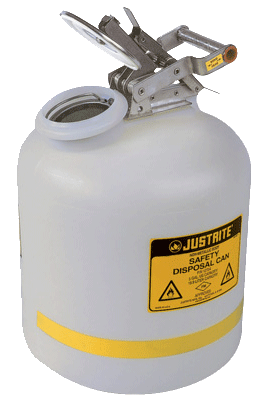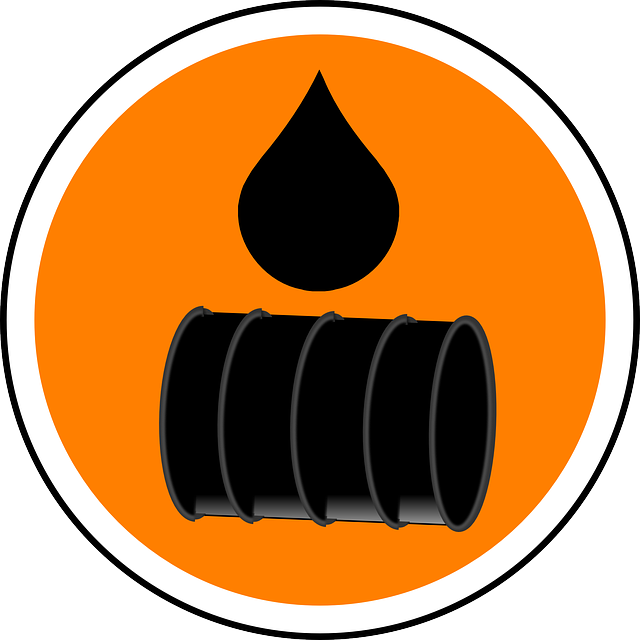Recognizing the Comprehensive Refine of Fluid Waste Disposal: Ideal Practices and Environmental Impact Factors To Consider
The monitoring of liquid waste disposal is a complex problem that calls for a detailed understanding of different best techniques and their linked ecological impacts. From the kinds of fluid waste generated to the methods utilized for collection, treatment, and last disposal, each action plays a critical function in protecting ecological communities and public health and wellness.
Sorts Of Liquid Waste
Comprehending the various sorts of fluid waste is essential for efficient monitoring and disposal practices. Liquid waste can be generally categorized into a number of kinds, each calling for distinct handling and treatment strategies.
Industrial liquid waste frequently consists of hazardous materials, including heavy steels, solvents, and chemicals, generated throughout manufacturing processes. These wastes require rigorous regulative conformity to shield human health and the atmosphere. Domestic liquid waste mostly describes wastewater created from houses, including sewage and greywater, which, although much less hazardous, can still posture significant risks if improperly handled.
Agricultural liquid waste, including overflow from ranches, typically contains plant foods and chemicals that can bring about ecological destruction otherwise treated properly. Medical liquid waste, generated from healthcare facilities, includes contaminated liquids such as physical liquids and chemicals, needing specialized disposal techniques to avoid infection and ecological contamination.
Finally, oil and grease waste, usually created by restaurants and automotive sectors, can create extreme obstructions in drain systems if not managed properly. Understanding these classifications helps with targeted techniques for treatment, conformity with guidelines, and efficient disposal methods, inevitably promoting environmental sustainability and public wellness security.

Collection Approaches
Efficient collection techniques are crucial for the correct administration of liquid waste, making certain that it is collected safely and successfully prior to treatment or disposal. Different techniques are used depending upon the kind of fluid waste produced, the volume, and the details attributes of the waste.
One usual approach is using committed collection tanks or sumps, which are created to capture fluid waste at the resource. These systems frequently integrate pumps that assist in the transfer of waste to bigger storage containers or therapy facilities. Furthermore, mobile collection devices geared up with vacuum cleaner technology are utilized in scenarios where waste is generated intermittently or in hard-to-reach areas.
For industrial settings, closed-loop systems can properly reduce spills and leakages, permitting the healing and reuse of fluid waste. It is also necessary to educate personnel on appropriate collection procedures to minimize risks related to harmful materials.
Furthermore, executing normal maintenance routines for collection tools ensures optimal performance and security. The combination of sophisticated surveillance systems can boost collection efficiency by offering real-time data on waste levels and prospective dangers. On the whole, reliable collection methods are foundational to lasting fluid waste monitoring practices.
Therapy Procedures
Therapy procedures play a vital duty in the administration of liquid waste, changing possibly dangerous materials into recyclable resources or safe effluents - liquid waste disposal. These processes can be broadly classified right into physical, chemical, and organic techniques, each tailored to address specific impurities existing in the waste stream
Physical therapy techniques, such as sedimentation and filtering, work by removing put on hold solids and particle matter. These methods are frequently the very first step in the therapy chain, efficiently reducing the tons on subsequent processes. Chemical therapies include the use of reagents to neutralize unsafe materials, precipitate heavy steels, or oxidize organic pollutants, therefore improving the safety of the effluent.
Biological treatment procedures, including turned on sludge systems and anaerobic digestion, take advantage of the natural capabilities of microbes to deteriorate organic issue. These techniques are particularly effective for wastewater having eco-friendly pollutants. Advanced therapy modern technologies, such as membrane purification and advanced oxidation procedures, are significantly used to achieve greater levels of purification.
Integrating a mix of these treatment techniques not just guarantees compliance with governing criteria but likewise advertises ecological sustainability by recouping valuable resources from liquid waste.
Disposal Options
Exactly how can companies make certain the accountable and secure disposal of fluid waste? Effective disposal options are vital for safeguarding public health and wellness and the atmosphere. The main approaches consist of land incineration, therapy, and disposal adhered to by discharge right into metropolitan wastewater systems.
Land disposal entails the careful containment of liquid waste in assigned garbage dumps, ensuring that it does not leach into surrounding soil or water. Incineration, on the other hand, subjects liquid waste to high temperatures, converting it into ash and gases, which require proper filtration to minimize emissions. This method appropriates for hazardous wastes that can not be treated with conventional means.
In cases where fluid waste can be dealt with, organizations may go with organic or chemical therapy procedures to reduce the effects of harmful elements before releasing the dealt with effluent right into community systems. This route generally aligns with governing needs, making sure that the effluent meets safety criteria.
Eventually, organizations have to browse around this web-site carry out extensive assessments of each disposal alternative to identify its viability, considering variables such as waste structure, governing compliance, and potential dangers to health and the setting. By selecting ideal disposal techniques, businesses can add to a responsible waste monitoring technique.
Ecological Impact
The environmental effect of fluid waste disposal is a crucial factor to consider for companies looking for to minimize their environmental impact. In addition, the discharge of untreated or inadequately treated waste into surface waters can result in eutrophication, leading to oxygen exhaustion and the succeeding fatality of fish and other organisms.

To reduce these impacts, organizations must take on ideal methods such as carrying out extensive waste treatment procedures, advertising recycling and reuse, and adhering to regulatory criteria. By taking a positive method to liquid waste monitoring, entities can dramatically lower their environmental footprint while sustaining sustainable development objectives. Eventually, a comprehensive understanding of the ecological effects connected with fluid waste disposal is vital for educated decision-making and liable stewardship of all-natural sources.
Conclusion
Reliable administration of liquid waste is vital for safeguarding environmental integrity and public wellness. By embracing ideal methods in disposal, treatment, and collection, along with adherence to regulative standards, the capacity for hazardous contamination of ecosystems can be dramatically decreased. Continual advancements in modern technology and processes add to lasting waste management initiatives. Inevitably, an extensive understanding of fluid waste disposal not only minimizes environmental effects yet also promotes a dedication to responsible source monitoring and environmental stewardship.
The management of liquid waste disposal is a diverse issue that needs a detailed understanding of various finest methods and their linked ecological influences. From the kinds of fluid waste created to the approaches used for collection, therapy, and final disposal, each step plays an important role in safeguarding communities and public health and wellness.The ecological effect of liquid waste disposal is a vital consideration for organizations seeking to minimize their ecological footprint. Inevitably, a thorough understanding of the ecological influences linked with fluid waste disposal is necessary for notified decision-making and accountable stewardship of natural sources.
Inevitably, a thorough understanding of fluid waste disposal not only mitigates ecological influences however likewise promotes a commitment to responsible More about the author source monitoring and ecological stewardship.
Comments on “Leading Industrial Wastewater Treatment Solutions: Making Sure Conformity and Efficiency”